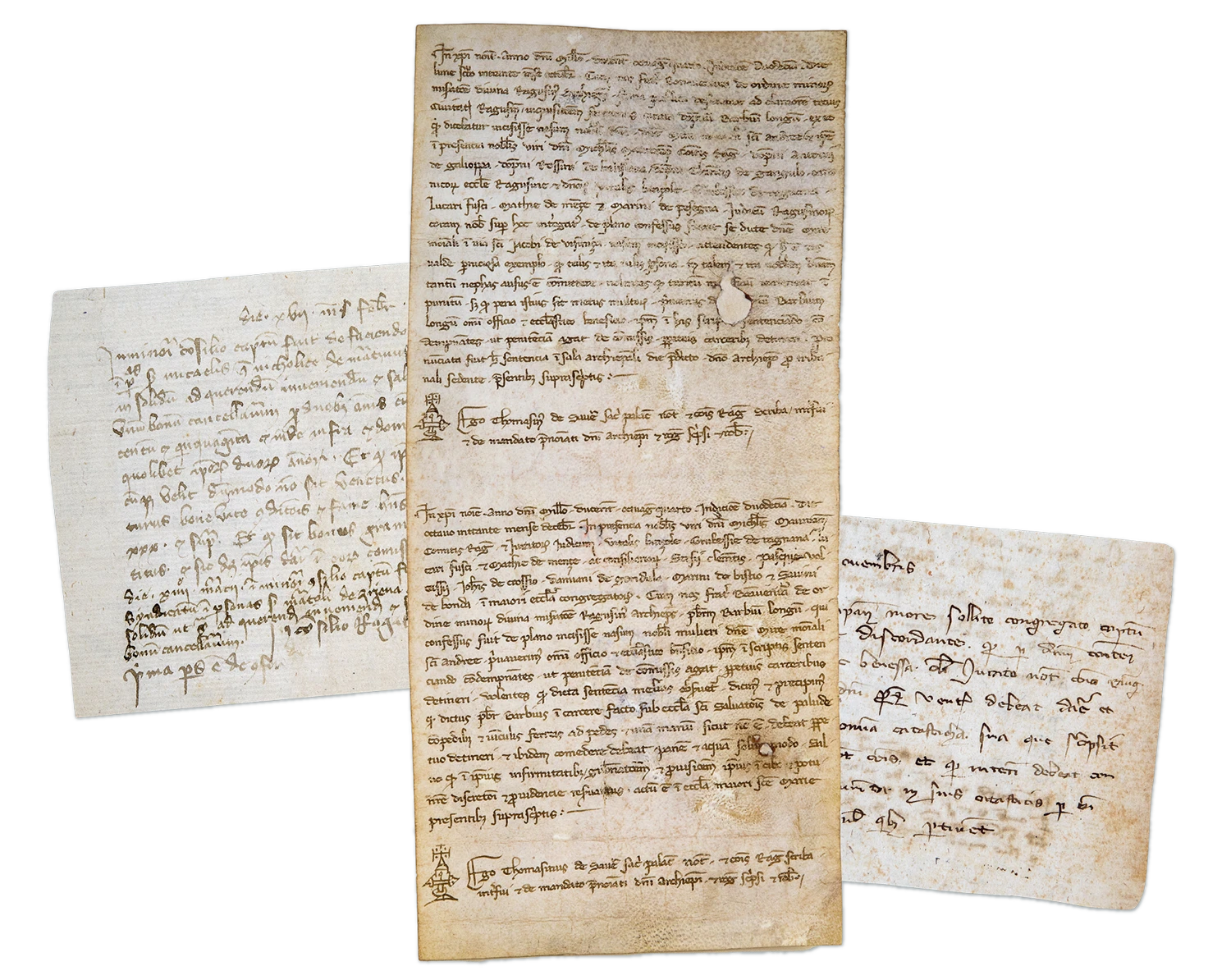1284 - Foreign notaries at the service of Dubrovnik
In the 1270s, Dubrovnik started to appoint foreign notaries, mainly Italians, who were more experienced, trained in the ars notariae and were licensed “by imperial authority”. The rationale behind this was the ambition of the commune to raise the standards of notary production and to exclude the interference of the Dubrovnik-born notaries with the local environment. The first foreign notary in Ragusan service was Tomasino de Savere from Reggio Emilia, who performed his duty in Dubrovnik for at least eight years (1278?-1286). The two documents on one parchment contain criminal sentences against priest Barbije Longo who cut off the nose of nun Mira. They were written by request of the archbishop who presided the ecclesiastical court. At its end Tomasino wrote the declaration of authenticity of the copy, and provided it with his notary sign, here presented also in detail.
Dubrovnik, 2 October and 8 December 1284
Parchment, 16 x 34 cm.
HR-DADU-7.3.3-3 Diplomata et acta saec. XIII, no. 325.1326 - The importance of protocols in the notarial practice of Dubrovnik
Around 1260, protocols (registers) were introduced to the notarial practice of Dubrovnik, in which the short version of the legal transaction was recorded. As elsewhere in Southern Europe, an entry in the Dubrovnik protocol was regarded as the principal record of the transaction, and not the charter issued. Therefore, all the notaries at the end of their duty had to hand over their protocols, to be kept in the official archives and to serve when a new copy of a document was needed or if the question on authenticity was raised. Thus, by deliberation of the Minor Council of 1326, the former notary Andrija Benessa was required to bring his protocols (catasticha) to the communal chancellery after completing the drafting of the instruments.
Dubrovnik, 20 November 1326
HR-DADU-1 Reformationes, vol. 8, f. 70r.1383 - Personal profile of the notary
Because of the importance of notarial duty, the selection and appointment of a new notary was very carefully prepared. Dubrovnik witnessed a Venice-type notary office, with notaries being contracted for a certain period and paid by the commune. In the example of 1383 two envoys had to find a suitable notary to perform the duty of chancellor for two years with a salary of 150 ducats per year and free housing. The instruction given by the government (Minor Council) is explicit that the candidate should not be Venetian (as the Venetian dominance over Dubrovnik ended in 1358, and the two cities were on rival terms), and that he should be a mature person, of good conduct, social standing and reputation, and at least thirty years of age.
Dubrovnik, 17 February 1383
HR-DADU-1 Reformationes, vol. 25, f. 70v.
